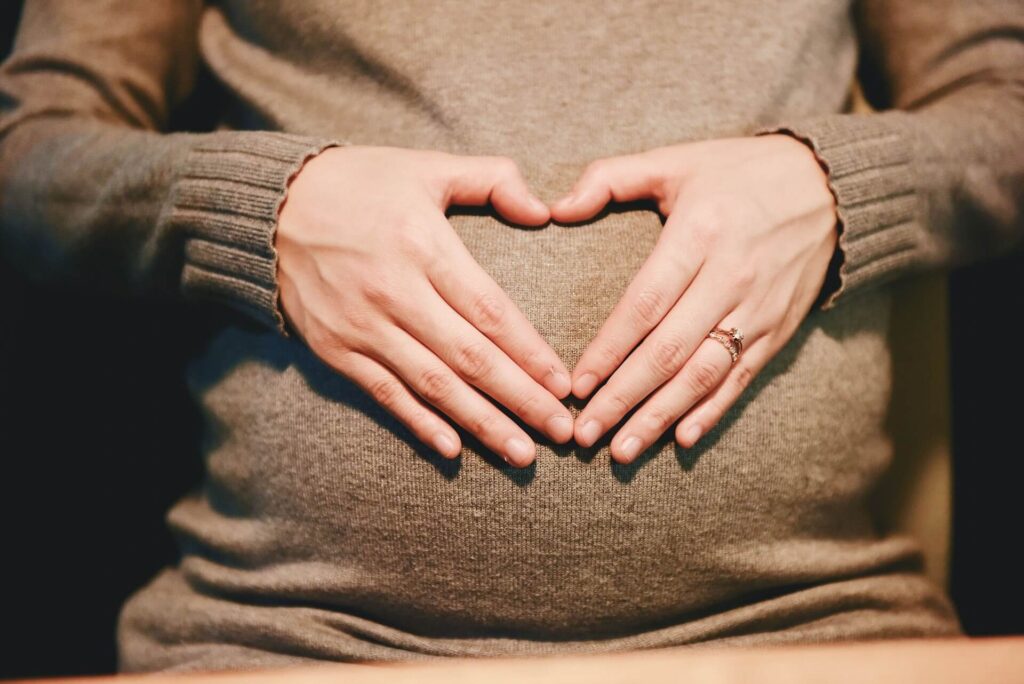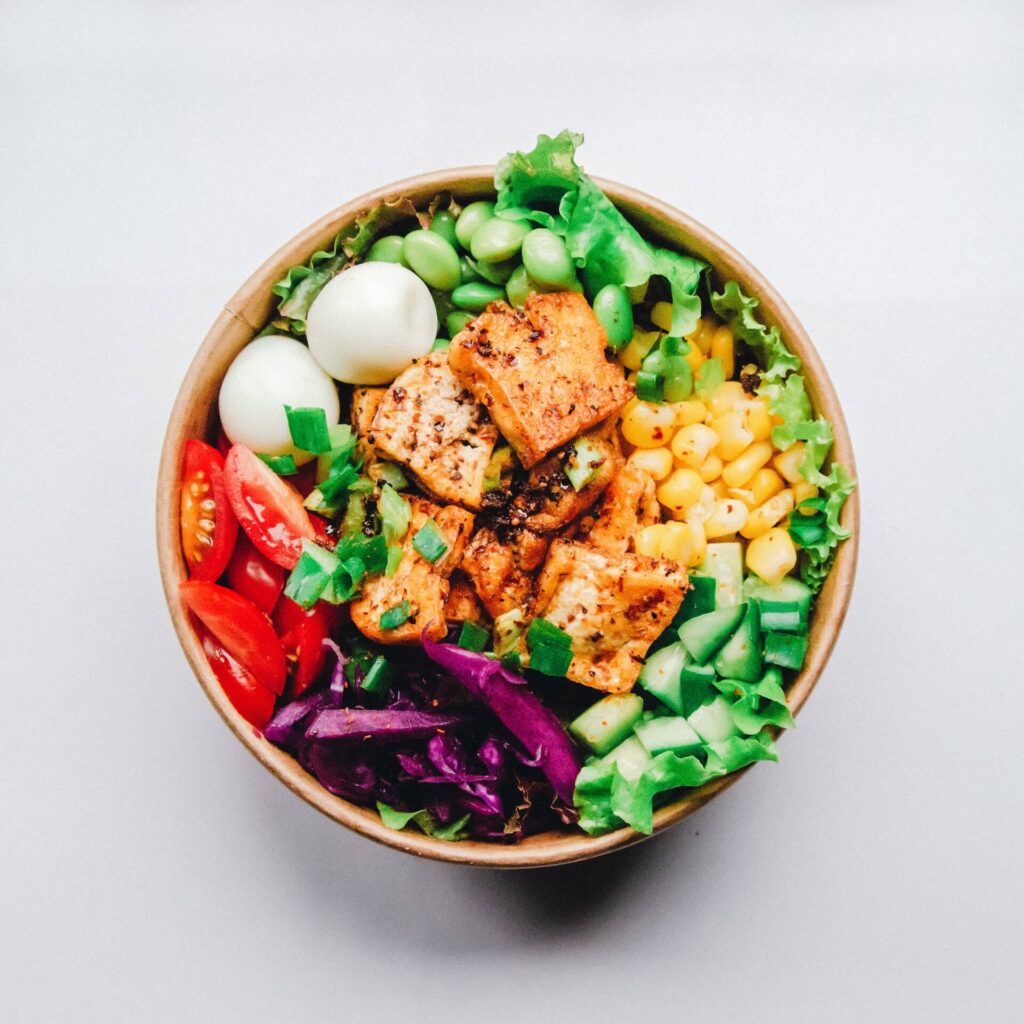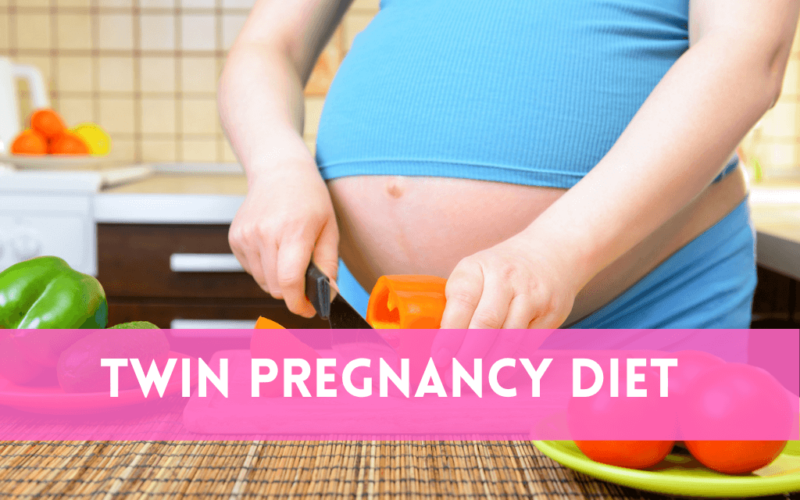During or before pregnancy, one thing that parents are constantly concerned about is what to eat and if it is safe to eat. While doctors should always help patients with adequate information, parents should get detailed information on every type of food that is safe to eat and proper care tips during twin pregnancy. You need to watch your intake, your medicines, and even your snacks in between your meals to grow two healthy babies inside your belly.
Usually, people prefer to see a dietitian to get a list of everything they need to eat. That is very much recommended, especially if you have allergies or getting pregnant for the first time. However, throughout the nine months or more you will try to change your taste bud and eat something that is not on the list.
While that is normal, having in-depth knowledge will always come in handy when you are trying to make a quick decision on what to do.
Don’t forget to check out my Nutrition Guidelines During Twin Pregnancy
Eating for Two? No need

Many parents of twins think that they have to eat more as they will be carrying more than parents with one child. However, this is a myth explained by the NHS. The number of fetuses in your belly does not change the portion of food you need to eat. However, you need to increase some amount in the final 3 months of your twin pregnancy. That is, you will have to increase 200 calories a day.
Food that is Safe to Eat

Lean Meat
Proteins are called the building blocks in pregnancy. One of the best sources of protein can be lean meat. It can include chicken, beef, lamb, etc. But you have to be careful about the way you eat it. Especially beef and pork are rich in many minerals and vitamins.
Make sure the entire piece of meat is well and thoroughly cooked. There should not be any juice or pink shade inside the piece of meat. Do not use too much oil as it can be harmful and cause intestinal problems. Ensure this type of cooking is even for sausages, poultry, burger meat, etc.
Meat can help your twins grow. It is the main source of amino acids which is the main building block. It is also a great source of iron which is an essential part of your pregnancy. Iron helps create red blood cells for you and your baby. A huge amount of iron and protein can be directly absorbed from lean meat.
Fish
Pregnancy appetite can be unpredictable. Sometimes you might not feel like eating meat. That is when you can think of fish as a substitute. However, you also need to intake a certain amount of fish every week. The recommended portion is 2 each week.
One can be oily like salmon and sardines. Speaking of salmon, it is very rich in vitamins like omega-3 fatty acid which builds the brain and some delicate parts of your twins. It also has vitamin D which builds the bones. A deficiency in vitamin D can cause other diseases in the fetus.
Therefore, make sure to have salmon or any other seafood in your dish twice a week. Seafood, in general, is rich in some vitamins that help build the intestines, brain, and eyes of a fetus. However, there are some fish that you should avoid eating during pregnancy, such as sharks, swordfish, and marlins. The reason is these are high in mercury and other contaminants.
Fruits and Vegetables
It is common knowledge that vegetables and fruits are rich in a variety of vitamins. Not only do they complement our dish every meal, but they also provide us with some of the necessary sources and vitamins that keep us healthy. During pregnancy, the recommended portion is 5 every day.
Dark green vegetables are rich in many types of vitamins and minerals. Spinach, broccoli, and kale can be cooked with many other sources of protein and carbs. The best thing about veggies is that they are a great source of fiber that can prevent constipation, reduce blood sugar, and improve the overall digestive system.
Vegetables are also correlated to low birth weight risk according to one study. Raw, dried, and canned vegetables are okay as well. For fetal development consider taking carrots, cooked greens, sweet potatoes, pumpkin, etc.
As for fruits, dry, frozen ones are okay as long as they don’t contain added or artificial sugar. That will increase blood sugar and cause a spike. Fruits like bananas are rich in iron which is an essential part of pregnancy.
Rice and Whole Grain Breads
This is the prime source of your energy. Includes rice, bread, pasta, oats, noodles, etc. Any source of carbohydrates in your diet will make you gain weight during twin pregnancy. Some people try to count calories, but this is not recommended by experts.
According to experts, you should increase 300 calories per day in the first trimester, 340 in the second one, and 452 in the third trimester as a mother of twins or multiples. Whole Grain food is highly recommended, such as brown rice, oats, and wheat berries, instead of refined ones like sugar, white rice, white bread, etc.
Potatoes are also incredibly rich in calories. Just make sure to peel off the skin while you eat it. You can try to intake oats and breakfast cereals in the morning along with fruits to make a healthy, tasty, and easy recipe. During this time, you should be careful not to intake fast food items like pizza, or potato chips.
Nuts
An amazing snack to munch on throughout the day! Nuts and seeds are easy to preserve and eat but very rich in containing different sources of vitamins and minerals, such as zinc, magnesium, potassium, vitamin e, fiber, omega-3 fatty acid, etc.
The benefits of munching on different types of them are building your twins’ teeth and hair, their body tissue, keeping control of insulin and sugar in the blood, etc. Other than the huge amount of nutrients in them, nuts can also be a complimentary item in breakfast and afternoon snacks.
Other types of seeds like sunflower seeds, and flaxseed, can also control the hormone level in the body. You can try to put some nuts in your breakfast yogurt or oats.
Dairy Products
While pregnant, you are constantly helping build two humans inside your belly. Therefore, you need to choose your food according to what influences the development of fetuses and humans. Dairy products like milk, cheese, and butter have calcium, vitamin D, iron, and other nutrients in them which make daily products one of the essential intakes at this time. They also contain protein that we called a building block earlier for fetal development.
They also have probiotic bacteria that can increase your digestive power and helps with constipation. If you are wondering what type of product you should eat, it is recommended to eat low-fat ones. For example, you can try 1% fat, skimmed, or semi-skimmed. You can also choose unsweetened and calcium-fortified yogurt. Yogurt can also be a breakfast meal coupled with bananas, berries, etc.
For those who are lactose intolerant, you can replace them with fish, yogurt, etc to fulfill the daily calcium target. Almond milk can be a great substitute too. Try to talk to your doctor and get a prescribed recommendation on it.
Eggs
We have already talked about the importance of having protein. Eggs are one of the primary sources of protein that can help with fetal development by developing their skin, and bones, and accelerating their growth. One egg is considered to be a high-quality protein with about 80 calories.
Not only do they build the body they provide necessary nutrients to it too. Vitamin D and other vitamins in eggs can help develop the nervous system of the twins, brains, and strong bones too.
The good thing about eggs is that it one source of protein that is very easy to cook. At the end of the day or week if you feel like you haven’t had enough proteins you can boil one and eat it. Not only that you can also try to cut down on one type of protein once in a while and add a poached egg to balance it.
Water
As the entire world says now “Remember to stay hydrated through it all”. Water intake is very important for every human being. The prime source of fluid that helps digest and absorb the food carries minerals, and helps create an adequate amount of urine. A study suggests that when you are pregnant, your blood volume increases by about 45 percent which means your blood needs more water to carry nutrients in it.
Lack of water in the body can cause serious consequences during pregnancy like stress, heat stroke, headache, confusion, etc. To avoid it you need to maintain a recommended amount of water in your body. A lot of women suffer from urinary infections. To prevent it, you need to intake water.
While other types of beverages have water too, they might not be healthy for you at this time. Carbonated and caffeine should be avoided, so you can try to have fruit juice and protein smoothies sometimes to bring some variety to your meal.
Oil and Fat
Oil and fat are critical food source that needs to be measured. Experts recommend intaking oil that comes from plants should be safe such as sunflower, olive, and canola. Healthy fats can be taken from oil extracted or gotten from fish, nuts, and avocados. However, those that come from animals like pork, beef, and duck should be avoided as those can be harmful to your body.
Snacks Ideas
Here are some snacks ideas that you can prepare beforehand so that you can munch on throughout the day in between meals. In the first trimester, you might also have nausea and vomiting issues and that’s when you can have snacks you like so that you don’t starve.
- 2 apples, with cheese sticks, along with some other fruits and salad.
- Nuts if you aren’t allergic to them. Walnuts are helpful during pregnancy. You can also try to mix various types and munch on them. You can get this box of unsalted mixed nuts here.
- Oats with strawberries, bananas, etc.
- Toast with avocado, peanut butter, and jelly. Along with some fruits.
- Breakfast cereal with milk, bananas, and berries.
- Greek yogurt with granola, fruits, and berries.
- Dried unsweetened fruits or veggies like this pack.
- You can also buy protein boxes with fruits, boiled eggs, and cheese in them.
- A vegetable tray might be a good option too.
- Boiled eggs with a glass of fruit juice.
Food to Avoid
There are some types of food that need to be avoided during pregnancy.
- The less salt you can intake the better. It can increase your blood pressure and also increase the chances of other diseases.
- Dairy products made from unpasteurized milk should be avoided. This includes milk and dairy products made from unpasteurized milk like soft blue cheese. The reason is dairy products like this has one certain type of bacteria that can cause problems in your body. Unless properly heated the bacteria remains in the food.
- Meat that is not cooked properly or undercooked, has a pink shade inside, as we mentioned before, this type of piece of meat can have parasites in it.
- Raw or partially cooked eggs especially duck, quail, or goose eggs. You could get food poisoning from it.
- Smoked fish because you could get a certain type of disease from it and pregnant women are more prone to the disease called listeria. Make sure your fish is thoroughly cooked or smoked.
- Alcohol should be avoided if you don’t want any long-term effects on your baby. Staying away from it till you get to hold your twins in your arms is the best approach to staying healthy.
- Caffeine can be taken at the maximum level of 200 mg every day. So you can have tea and coffee, but make sure not to cross the healthy limit so that you can keep your twins safe from long-term health conditions.
- Consult with your doctor before taking any vitamin supplements, and avoid the ones with vitamin A in it.
- Luncheon meals should be heated thoroughly and steaming hot before you eat them.
- Always remember to wash your fruits and vegetables thoroughly so that there is no chemical or soil on them. This will keep you safe from parasites, diarrhea, and other diseases.
You can also watch this video from a certified source on what to eat while you are pregnant.
Conclusion
While it may seem like there are a lot of restrictions on food, it is nothing like that. If you read carefully, you will see that it is mostly the types of food that might cause food poisoning and have harmful chemicals in them.
Even after reading this list, if you are confused about what you want to eat, it is better to consult with a doctor during a sensitive time like this. And if that seems like a hassle, you can just avoid eating it and save it for later. Everything you can’t eat now, you can enjoy later with your twins in your arms. To get more ideas about your diet, you can get this book.







